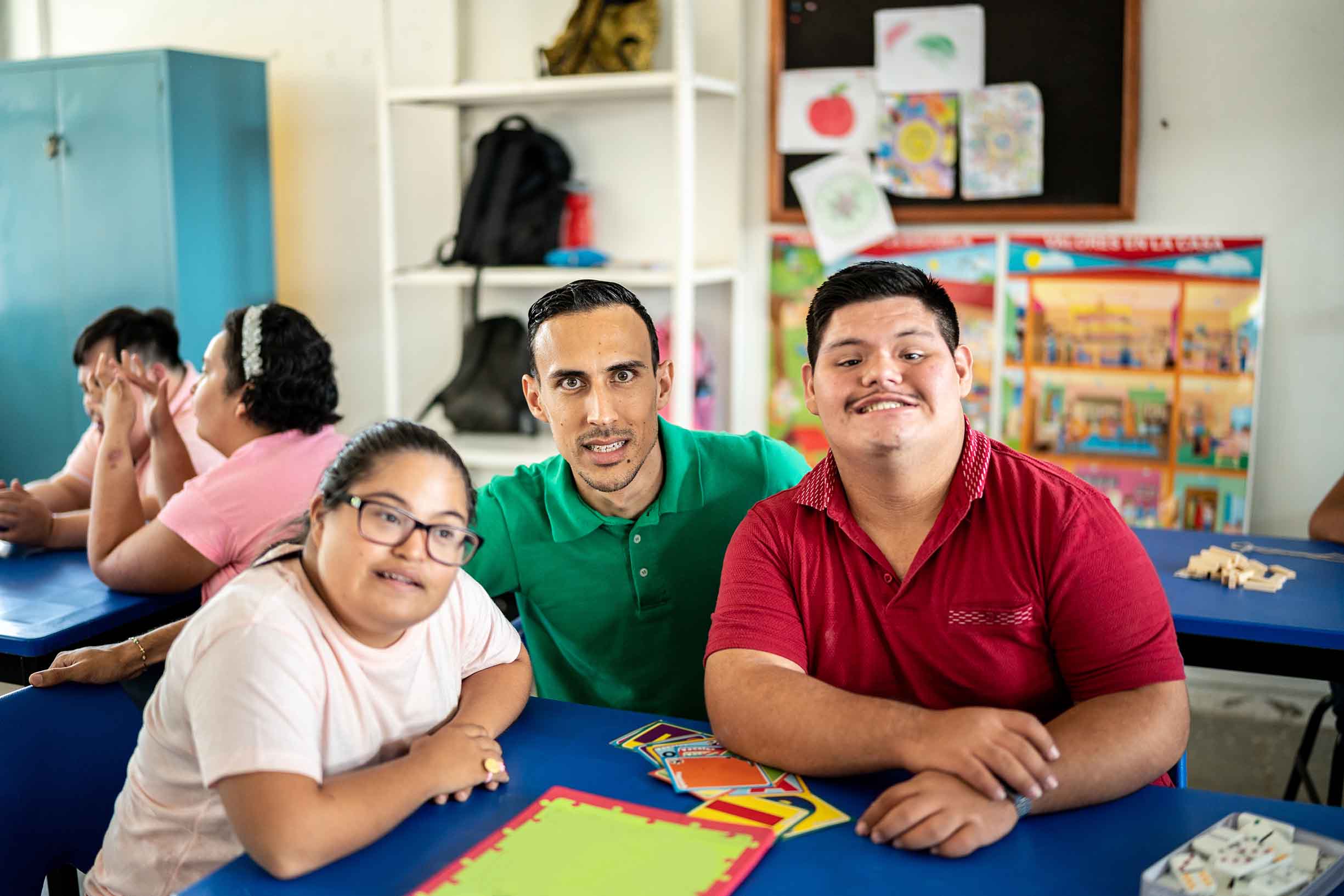Stay connected
Be the first to know about new programs, upcoming events, or other exciting opportunities happening at the University of Georgia by joining our mailing list.
About this course
What you’ll learn
You will learn the educational interpreter’s roles in discussions of psychological evaluations, eligibility, Individualized Education Plans, reevaluations, and post-high school transition plans.
Through interactive discussions, practice and vocabulary-building exercises, you will also learn:
- Concepts, components, and terminology of special education
- The importance of special education legislation
- How to apply the Interpreter’s Standards of Practice to promote trust and communication among parents and schools
- How to explain special education processes—such as eligibility, Parent Rights, and Individualized Education Plans—to parents
- How to remain impartial and accurate when interpreting difficult concepts
- Modes of interpretation in special education settings
- How to deal with the stresses and emotions of being an interpreter
Learning objectives
Module 1: Introduction to Special Education Interpretation
- Understand the special skills needed to effectively and accurately interpret for special education meetings
- Describe legislation pertaining to special education
- Recognize the roles of special education professionals and support personnel, including interpreters
Module 2: Standards of Practice in Special Education Interpretation
- Demonstrate knowledge of the interpreter’s Standards of Practice and Code of Ethics as they apply to special education interpretation
- Discuss and define the appropriate application of the Standards of Practice to case scenarios
Module 3: Overview of the Special Education Process
- Define the identification, referral and eligibility processes involved in special education
- Describe procedural safeguards offered through the special education parental rights
- Enhance knowledge of special education terminology in the areas of special education identification, referral and eligibility
Module 4: The Individualized Education Plan
- Identify the main sections of an Individualized Education Plan and the role of the interpreter in the process
- Describe different types of IEPs and possible support services that a student can receive
- Enhance knowledge of special education terminology in the area of Individualized Education Plans
Module 5: Common Disabilities and Chronic Conditions
- Identify common disabilities and chronic conditions that the interpreter may encounter in the school system
- Describe assistive technology and supportive services available to help students with disabilities and chronic conditions
- Evaluate appropriate ways to handle interpreter stress and emotions when dealing with families and students with disabilities and chronic conditions
- Enhance knowledge of special education terminology in relation to common disabilities and chronic conditions
Module 6: Additional Terms to Know
- Describe additional terms used in the explanation of IEP services
- Understand the purpose of transition plans and terminology related to them
- Identify aids and related services that students may be eligible for in special education
Module 7: Discipline and the Special Education Student
- Identify behavior intervention plan components and the role of the interpreter in behavior intervention meetings
- Examine disciplinary consequences and accommodations provided to special education students involved in disciplinary incidents
- Describe Manifestation Determination meetings and possible outcomes
- Enhance knowledge of special education terminology in relation to disciplinary and behavior interventions
Module 8: Course Wrap-Up, Post-Test and Final Exam
- Expand your resources and continue exploring ways to build your skills as a professional interpreter in special education
- Create a professional development action plan
- Review your knowledge of interpretation in special education and assess your learning throughout the course
Who should attend?
K-12 educational interpreters, bilingual school staff, and contract/independent interpreters who already have a strong foundation in the basics of interpretation and seek to master the art of interpreting in a special education setting.
Continuing Education Information
Successful graduates will earn a Digital Certificate of Program Completion and 3.0 CEUs from the University of Georgia.
Requirements & policies
Schedule
Live online classroom sessions with the instructor will be held from 6:30 p.m. – 8:30 p.m. EST on the following Tuesdays:
- March 3
- March 17
- March 31
- April 14
The instructor will be available for office hours on March 10, March 24, and April 7.
Cancellation or refund
We will issue a refund, minus a $75 processing fee, for cancellations made at least seven (7) days before the course start date. No refunds for cancellations after that date. All cancellation and refund requests must be submitted via the “drop request” feature in the participant (registration) portal.
Prerequisites
You must be fluent in both English and a second language to complete the certificate requirements. Since this is an advanced interpretation course, it is recommended that you take the Professional Interpreter in Education Certificate Program or that you have knowledge of the foundations of interpreting in a school setting.
This course requires the equivalent of Advanced Mid or higher on the American Council on the Teaching of Foreign Languages (ACTFL) Oral Proficiency Assessment (OPI). Please see the ACTFL website (Opens in a new window) for more information regarding proficiency guidelines. For prospective students who are unsure of their proficiency level, we highly recommend taking the Oral Proficiency Assessment (OPI) before registering for the course.
People
Instructor
Ana Soler, the course author and instructor, is the Chairperson of the National Association of Educational Translators and Interpreters of Spoken Languages (NAETISL) and Founder of SeSo, Inc., a source of qualified and trained interpreters and multicultural family engagement workshops. She completed her bachelor’s degree in Social Work at Georgia State University, her master’s degree in Public Health at Emory University, and is a Ph.D. in Special Education student at the University of Georgia. For over a decade, Ana worked with the largest school district in Georgia as the Language Services and Parent Outreach Coordinator, developing, implementing, and evaluating professional development opportunities for multilingual personnel and supporting schools with interpreter/translator quality assurance.
While working as a Multicultural Program Coordinator for Children’s Healthcare of Atlanta, Ana assisted with the creation of the hospital’s interpretation and translation department. She also coordinated interpreter training for bilingual staff, oversaw cultural competency training for physicians and staff, and provided medical translation quality assurance and guidelines. Ana has authored interpreter training curricula nationally, including the Intercultural Parent and Youth Leadership Program, the Interpretation Academy for Bilingual High School Students, the Arkansas Interpreter in Education Credential Training, a 40-hour course for medical interpreters, and other online courses for the University of Georgia, including the Professional Interpreter in Education Certificate course and the Professional Interpreter in Special Education Certificate course. She remains an active medical and educational interpreter and translator.

Prices, course details, dates, and times are subject to change.
Contact us + FAQs
FAQs
View the most frequent questions asked by our learners
Financial and Military Assistance
Find out which programs are eligible for assistance
Accommodations
View our accommodation policy
See what our students say

“This course provides a trained interpreter with the in-depth knowledge of special education is essential for interpreters in this field. Ana Soler is a highly knowledgeable instructor and interpreter.”
Leslie Padilla-Williams
HOLA Language Services





